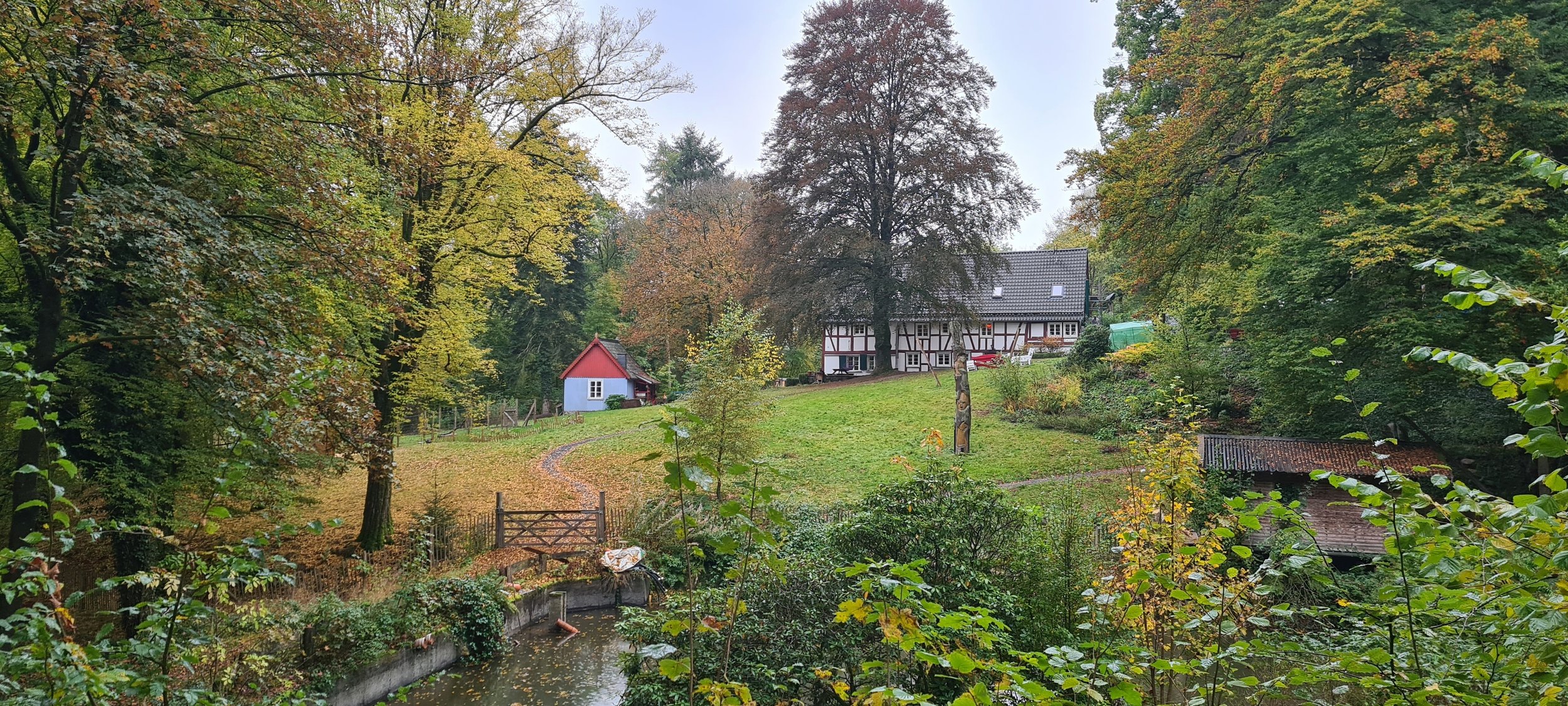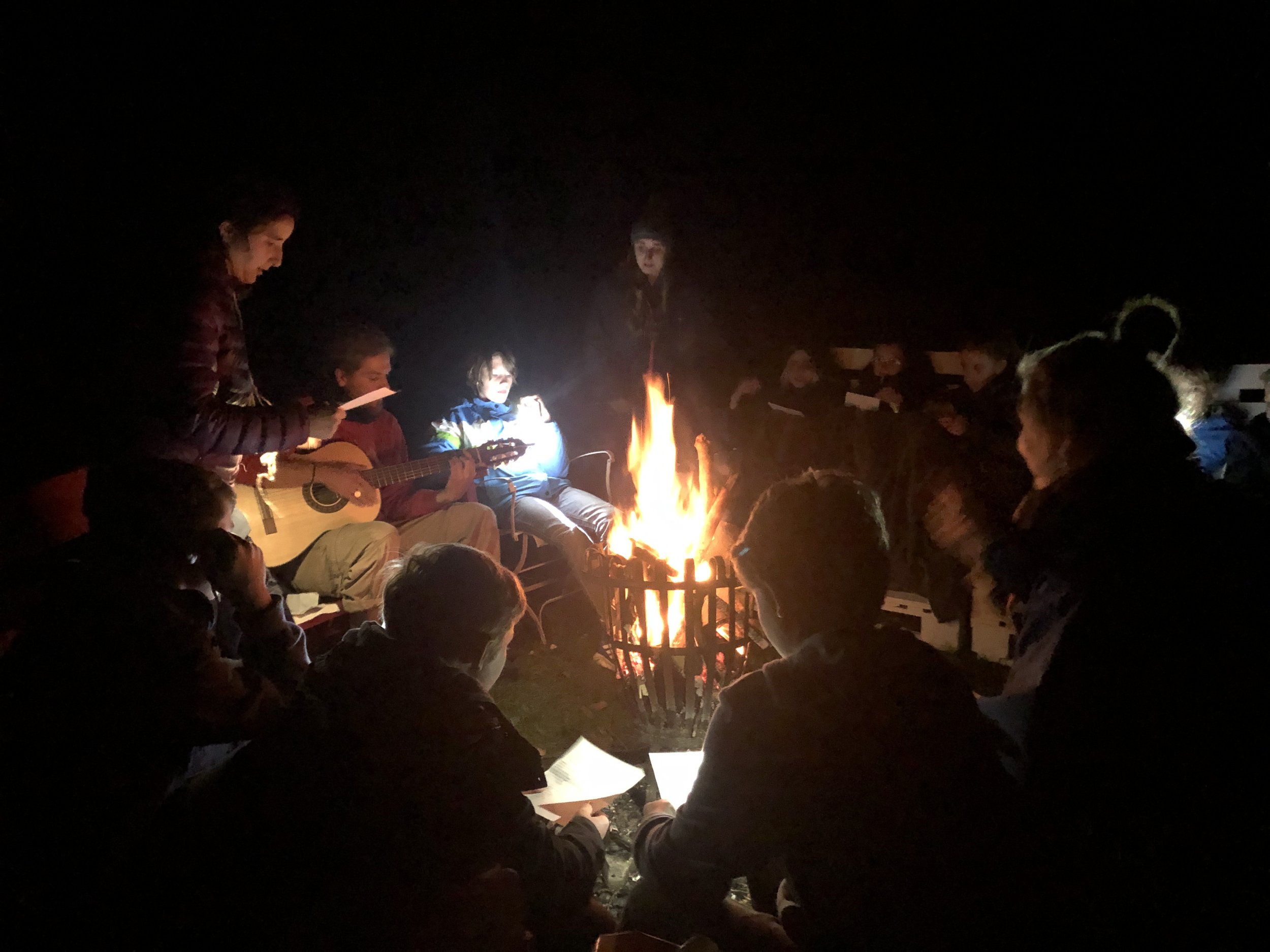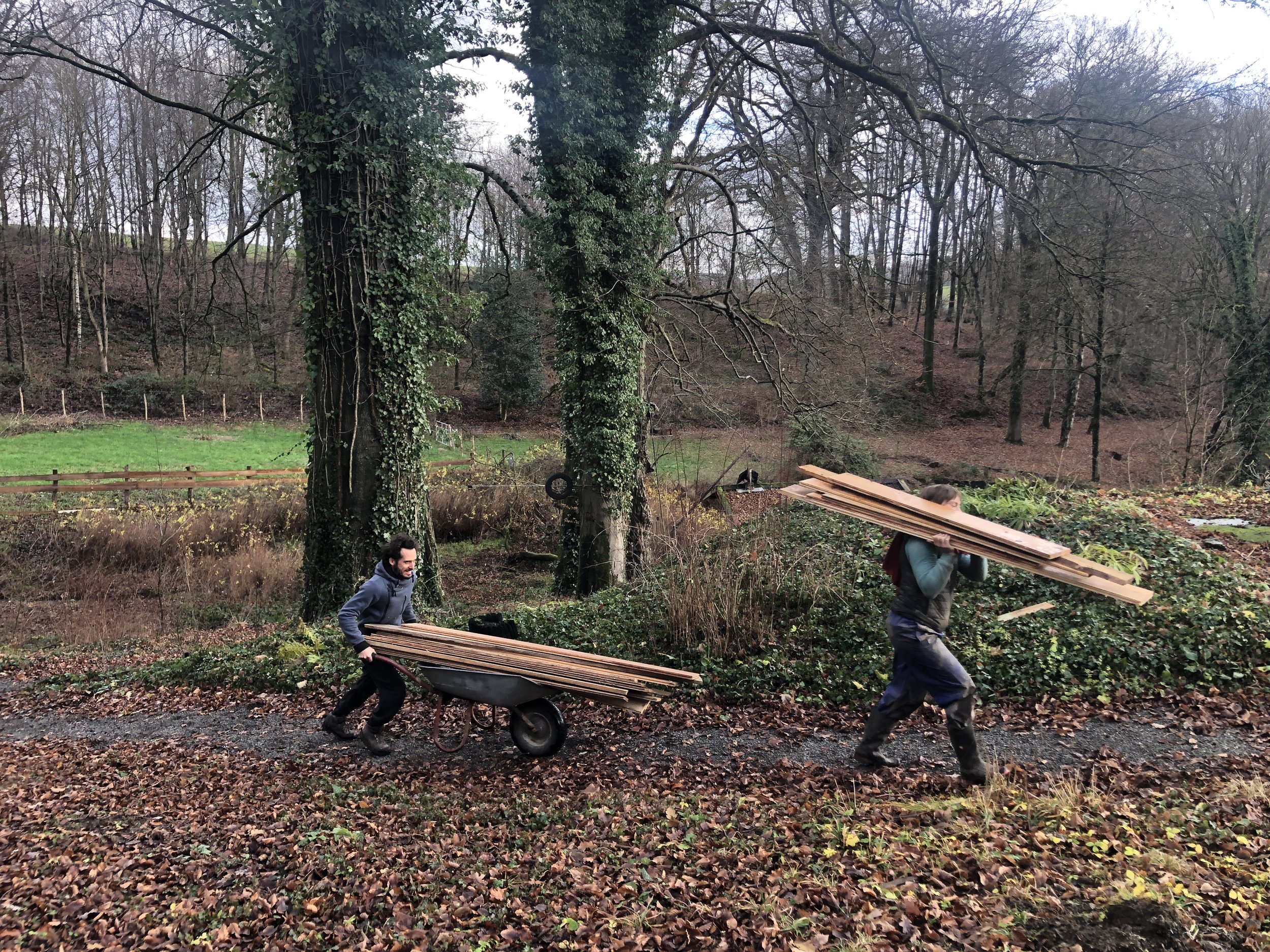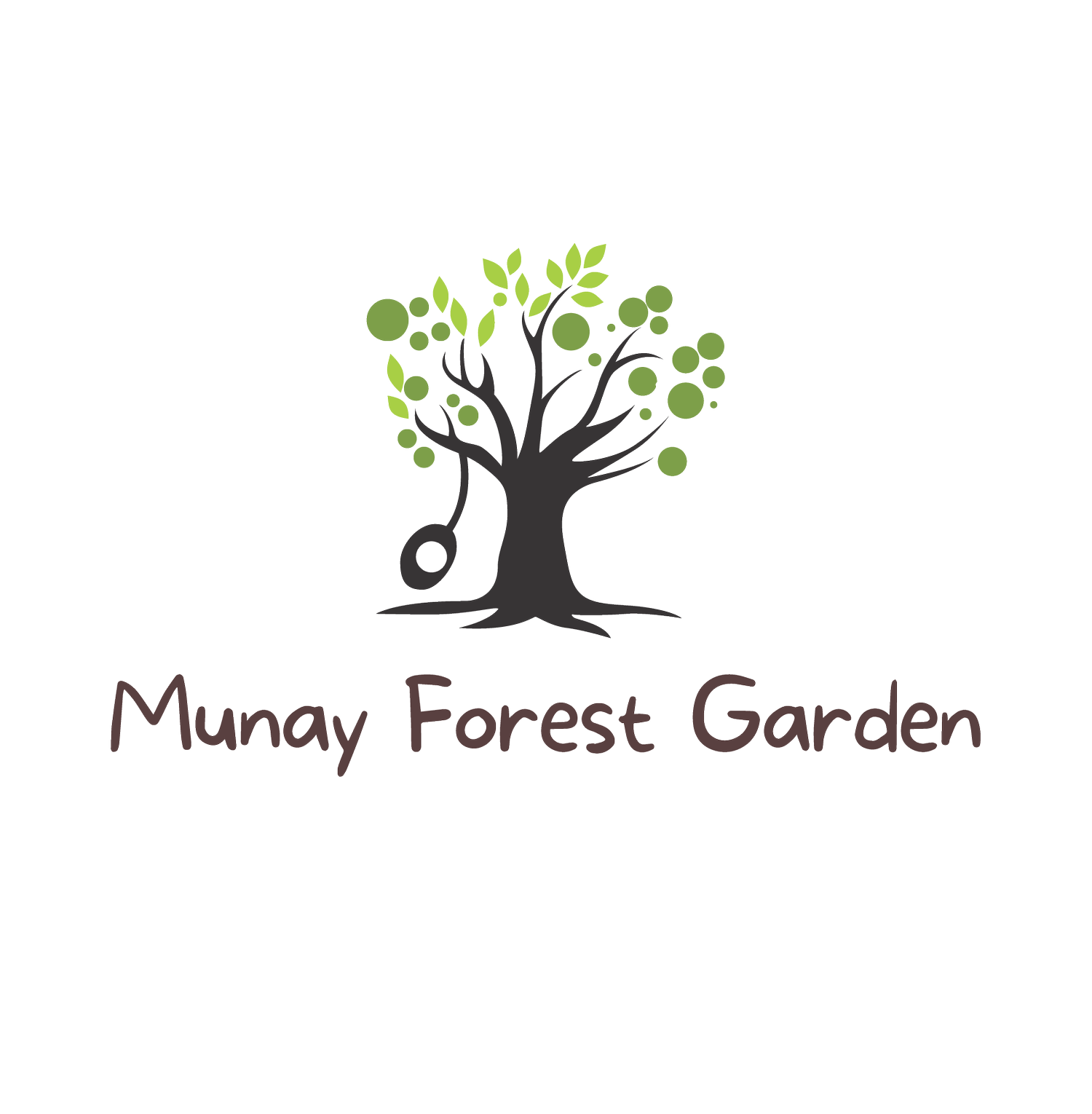Wilkommen in unserem magischen essbaren Waldgarten

Munay Forest garden
Munay Forest Garden: Entdecke unseren essbaren Wald, in dem Permakulturdesign, essbare Pflanzen und Tiere zusammen ein selbstversorgendes Ökosystem schaffen.
Dieser Bildungswald zeigt, wie mehrjährige essbare Pflanzen, unterstützt von Tieren und natürlichen Prozessen, zu einem lebendigen, resilienten Ökosystem heranwachsen. Wir arbeiten ohne Umgraben, Dünger oder Chemikalien und verlassen uns auf die Biodiversität, um Pflanzen und Tiere gesund zu halten. Blumen, Wildpflanzen, Insekten, Tiere und alles Leben über und unter der Erde gedeihen in Harmonie.
Munay (Quechua) bedeutet bedingungslose und ewige Liebe zu allen Lebewesen. Es spiegelt unseren Glauben wider, dass jedes Wesen nach Glück strebt, und leitet, wie wir uns um Pflanzen, Tiere und das gesamte Ökosystem im Munay Forest Garden kümmern.
Was wir als Aktivitäten anbieten:
-

Waldbaden / Shinrin Yoku
Möchtest du auch die heilende Kraft der Natur erleben? Dann nimm an unserer „Waldbad-Erfahrung“ teil. Komm und entdecke, dass auch ein Wald in dir lebt!
-

Waldsprachferien
Möchtest du eine neue Sprache durch spannende Aktivitäten in der Natur erkunden und lernen? Unsere Forest Language Camps für Kinder und Erwachsene bieten ein einzigartiges Erlebnis mit vielen Outdoor-Aktivitäten und Spaß!
-

Waldkinder
In diesem saisonalen Kurs werden Kinder die Freude daran entdecken, ihr eigenes Gemüse anzubauen. Bald werden sie ihren Garten in eine lebendige, essbare Oase verwandeln! Und das Beste daran? Wir integrieren dabei auch ein paar spannende Englischstunden!
-

Mitmachtage
Möchtest du deine Reise zu einem nachhaltigeren Lebensstil vertiefen? Willst du eine geführte Tour durch unseren Food Forest machen, an unseren ‚Permakultur-Workshops‘ teilnehmen oder uns bei praktischen Erfahrungen während unserer Arbeitstage begleiten? Unsere Workshops, Kurse und Touren sind genau für dich gemacht!
-
Permakultur Workshops
Description goes here -
Tours
Description goes here
Möchtest du bei uns übernachten?
Eintauchen in das Märchen von Hänsel und Gretel?
Unser TINY HOUSE ist ein eigenständiges, rauchfreies Ferienhaus für 2 Erwachsene mit 1 oder 2 Kindern.
Genieße WOODLAND WELLNESS!
Erlebe die Wärme unserer holzbefeuerten SAUNA, gefolgt von einem erfrischenden Eisbad in einem unserer natürlichen Schwimmteiche.
UNSER TINY_HOUSE_DRINHAUSEN IST GERADE IM BAU. VIELEN DANK FÜR IHR VERSTÄNDNIS - wir freuen uns, Ihnen bald zeigen zu können!

